China buys time for the West, and the West wastes it
Beast Press: At present, the Chinese people are very puzzled about the way Europe and the United States responded to the epidemic, and even began to have the illusion of "powerful, my country", but it seems that no one has gone deep into why European and American countries have adopted this response method. The Ministry of Truth They listened to whatever they said, and they were incited to feel national pride.
The democratic governments in Europe and the United States have indeed been at peace for a long time, and coupled with political restraint, their efficiency is not high. This is also related to the need for a democratic government to persuade citizens to reach a consensus. It cannot, like a totalitarian government, concentrate its efforts on major affairs under an order. Democracy will not be the best system, it is only relatively totalitarian, and at least there will be no major famine and Cultural Revolution, but it is definitely not perfect. Instead, Hannah Arendt's vision of a republican society would be a better possibility, with a large number of responsible citizens co-creating with the ability to take pleasure in and avoid pain.
While the virus still kills dozens of people there every day, government propaganda is touting the Chinese model and mocking America's efforts to fight natural disasters. Now, as the rest of the world suffers, China is trumpeting its aid efforts, sending teams to Iran and Italy to deliver supplies and provide advice.
Despite weeks of free information flow and real-world evidence of thousands of deaths in China, some political factions in the US — including some in the White House — are pushing a disinformation campaign to downplay the risks sports.
From a spiritual point of view, this global epidemic is both a crisis and an opportunity. The crisis is that the world returns to the tribal consciousness of seclusion and isolation, and when it turns, it moves towards the true collective consciousness of oneness of all beings, and loves neighbors as self-love.
appendix:
China buys time for the West, and the West wastes it
Zhang Yan
March 14, 2020
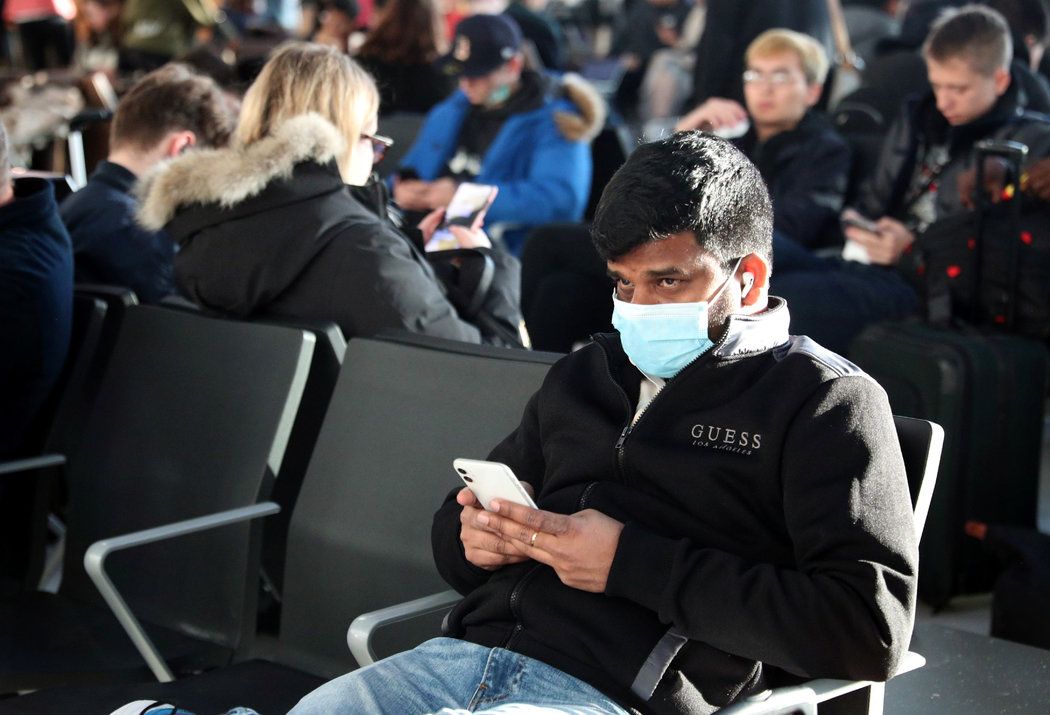
LONDON — When I stepped off my flight from Beijing to London about two weeks ago, I knew what I had to do: self-isolate right away.
I live in China, where the massive lockdown that has been in place since late January has taught all residents—even those far from Wuhan, the epicenter of the outbreak—that they are all facing a global health crisis. My boarding process in Beijing was a final reminder of the crisis: two mandatory temperature checks, an electronic health declaration, and an email address and two contact numbers.
But as the plane was about to arrive in London, I started to have a dreamy feeling. Airlines give passengers a cheaply printed sheet of paper that only advises us to call the regular National Health Service hotline if we feel unwell. Upon landing, arrivals were not subject to temperature checks and no health declarations required, meaning British officials would not be able to track us down if any of the passengers contracted the novel coronavirus. We just got off the plane, took off our masks, and disappeared into the city.
In the days since, both Europe and the United States have been shaken by the fast-spreading coronavirus in them. Italy is now under lockdown, and the number of cases across the United States is growing rapidly. The stock market has completely collapsed. On Wednesday, the World Health Organization officially announced what everyone had known for a long time: the outbreak had entered a global pandemic. Perhaps by the time you read this, health checks and declarations are finally becoming mandatory at airports in places like London.
But that doesn't change the fact that, over the past few weeks, attitudes to the coronavirus outbreak in much of the United States and Europe have been unusually passive, if not completely negative, in other words, governments in these places have let the virus contain the virus. The best time to spread passed by. It gave me a sense of déjà vu, and I have seen the consequences of this initial reluctance to face the problem in China. But what China had to deal with was a dire, unexpected surprise that Western governments had been informed of for weeks.
As if China's experience did not warn the West of the dangers of inaction. As a result, many governments appear to have been imitating some of China's worst measures while turning a blind eye to its best measures or successes.
Outsiders seem to want to see China's experience as unique to it. I think there are many reasons for this, and one of the self-comforting thoughts is that China is so far away that the epidemic there must not be so widespread and so fast. However, I think the most important thing is that outsiders, especially those in Western countries, have a prejudice against China's authoritarian political system, which makes them underestimate the possible value and significance of China's approach to their country.
Until recently, a major storyline was that the outbreak in China spiralled out of control as authorities suppressed early whistleblowers in late December, allowing the virus to spread. When China instituted draconian lockdowns and quarantines in January, some mainstream foreign reports not only criticized the measures as overdone; they also described taking the approach as downright retrogressive, or pointless at all. China does get compliments for building two hospitals in just over a week, but even the marvel at this feat is mingled with a sense that there must be some evil at work, as if marveling at "Hitler built a highway road". When governments set up quarantine places to house infected people to prevent them from passing the virus on to their families at home, the practice has been described as dystopian, or chaotic at best.
Refuting these Western understandings makes me slightly uneasy. I know that Chinese officials covered up the problem in late December and early January and made a series of disastrous decisions. I also know that China's leaders now want to promote their coercive tactics as a model. President Xi Jinping visited Wuhan for the first time on Tuesday, an unspoken milestone of success.
While the virus still kills dozens of people there every day, government propaganda is touting the Chinese model and mocking America's efforts to fight natural disasters. Now, as the rest of the world suffers, China is trumpeting its aid efforts, sending teams to Iran and Italy to deliver supplies and provide advice. China has also imposed travel bans on some areas with severe outbreaks, a measure that the Chinese government has criticized for being excessive when other countries take such measures against China.
However, it would be foolish to think that China's decisions are mainly based on simple and crude authoritarianism. One doesn't have to defend every measure in China medically; that's what medical professionals are likely to debate for years to come. But it is worth acknowledging that not all of China's failures are unique to its political system, and that some of China's policies are driven by serious consideration of the public interest and are implemented in a highly capable executive branch.
For example, before condemning Chinese officials' decision in early January to dismiss the looming threat of an epidemic, remember that there were no reports of any deaths from the coronavirus at the time. Contrast this with the current situation in the US, for example: despite the free flow of information for several weeks and the real-world evidence of thousands of deaths in China, there are still some political factions in the US - including some in the White House -- is promoting a disinformation campaign to downplay the risks.
If you think it's too easy to criticize President Trump, consider my experience at the London airport. Or recall Germany's decision earlier this week to host a major sporting event in its own epidemic zone. Or Japan's decision to let passengers leave infected cruise ships without proper testing. Some of these countries have changed their minds, trying to justify their previous indifference, but this has been missed for weeks.
China's leaders were indeed clumsy in their handling of the early days of the outbreak, but they were quick to take far more decisive steps than many elected leaders have so far taken. Whether the system is authoritarian or not, they also need public support. Chinese leaders may not have to face voters, but they also care about the legitimacy of their governing position, which also depends on their governance performance.
Certain aspects of China's quarantine measures—especially when they prevent the elderly and disabled from getting medical care—are unnecessarily brutal. But overall, I don't think most people dislike these measures. The government has worked hard to convince the people of the need for drastic measures. The government uses social media posts, news reports, billboards, radio shows and articles to bombard the population with the risk of the virus. In a park in Beijing, a looped recording warned people: "Wash your hands thoroughly. Avoid seeing friends. Stay away is safest."
According to my experience of living in China for several weeks during the height of the lockdown, and speaking to different groups outside the disaffected elite, people are largely supportive of these containment measures, although they are frustrated and even angry.
Some people focus on how the Chinese system failed to prevent the outbreak in the early stages, but they also ignore the effective practices of the Chinese system. Checking temperatures at airports, maintaining physical distancing, or providing free medical care to all who contract the coronavirus has nothing to do with authoritarianism.
Not all open societies are helpless. Singapore, Taiwan, and perhaps soon South Korea, have taken vigorous and rational measures to contain the virus, demonstrating insights that most Western nations seem to lack. This may be because these countries are closer to the epicentre of the outbreak, and their governments can recognize the seriousness of the problem and are also closely watching China's iron fist measures.
But for weeks too many countries further afield were indifferent to the development of the outbreak, first in China and later in the rest of Asia, as if it were none of their business. Some governments are hesitant because of a lack of political will. Others seem to fall prey to the notion that China is forever "alien," arguing that China's experience cannot possibly be relevant to us, much less offer any lessons—except the negative ones.
Ian Johnson is a Beijing-based writer who has lived in China from time to time since 1984. In 2001, he won a Pulitzer Prize for his coverage of China. His latest book is The Souls of China: The Return of Religion After Mao. Follow him on Twitter and Facebook.
Translation: Harry Wong
Xu Baoqiang: Epidemic, Xenophobia and Governance Crisis
Can civil society learn lessons to avoid repeating the same mistakes?
2020-03-15
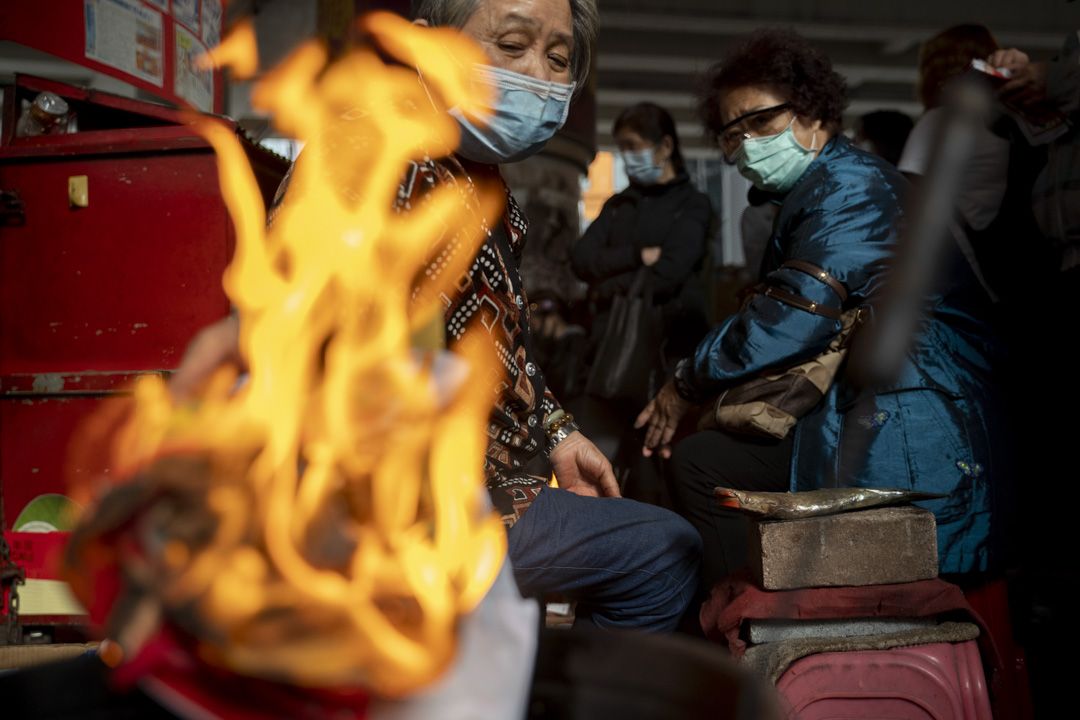
In Hong Kong, once hailed as a shopping paradise, some restaurants have recently sparked controversy over their "hospitality". Using "mainlander" or "Mandarin" to distinguish "guests" and even extending "friends and enemies" seems a bit inexplicable logically, but the strong emotions it contains are very understandable in the current social context of China and Hong Kong, and even more so. Worth pondering.
If you are obsessed with the contradiction between "China" and "Hong Kong", whether it is "racial" discrimination, or whether to accuse or justify the "Hong Kong drifting siblings"/"middle class Heli" who have shouldered the "colonial"/"left glue" Original sin, and even using the expedient strategies of "brothers climbing the mountain" and "pointing the gun at the regime" to handle differences again, I am afraid they have misplaced the problem and missed an opportunity for thorough reflection.
Ultimately, the three crises facing our society today—epidemics, “racial” exclusion, and governance legitimacy— all stem from a shared vision of the other (other race or species) as a tool. Power relations: unchecked exploitation and domination on the one hand, and total rejection of interdependence and respect on the other. When this exclusive and instrumental survival logic becomes the only principle of regime governance, it will naturally soon lose the recognition of the disrespected people; it is also difficult to truly "scientific" handle the epidemic with a single calculation of political interests. Or to respond "objectively" and "rationally" to the "China-Hong Kong conflict", problems will inevitably accumulate, and the crisis has long been written on the wall.
The next thing to think about is: Can civil society learn the lessons to avoid repeating the same mistakes?
Triple crisis at one root
On February 13 last year, the Hong Kong government officially promoted the revision of the "Fugitive Offenders Ordinance", which caused an uproar. One year has passed in the blink of an eye. During the anti-amendment movement, institutional violence and police brutality appeared alternately, accumulating a lot of public grievances, and the Chinese and Hong Kong regimes fell into a crisis of legitimacy of governance. The SAR government has shown complete submission to the central government, even at the expense of being an enemy of the people. In addition, the mainland media controlled by the CCP selectively magnifies the images of Hong Kong protesters who are "pro-American and hate China", intensifying the contradiction between the people of China and Hong Kong, and the two places are mutually exclusive. The feeling of rejection heats up.
However, the governance and "racial" (xenophobia) crisis triggered by the anti-amendment movement has not yet bottomed out. The "2019 coronavirus disease" that broke out in Wuhan in December last year and spread to the whole world not only revealed the fragility of the rapidly developing modern society in the face of the virus, but also further exposed the poor governance ability of the Hong Kong regime and weakened the remaining legitimacy ——From the large number of people "popping champagne" to celebrate after the riot police were infected with the virus, and the support of Carrie Lam in the latest poll with only 9% of the respondents, this can be clearly confirmed. More importantly, the epidemic crisis has caused a full-scale outbreak of the mutually exclusive "racial" contradictions that were planted earlier in the two places.
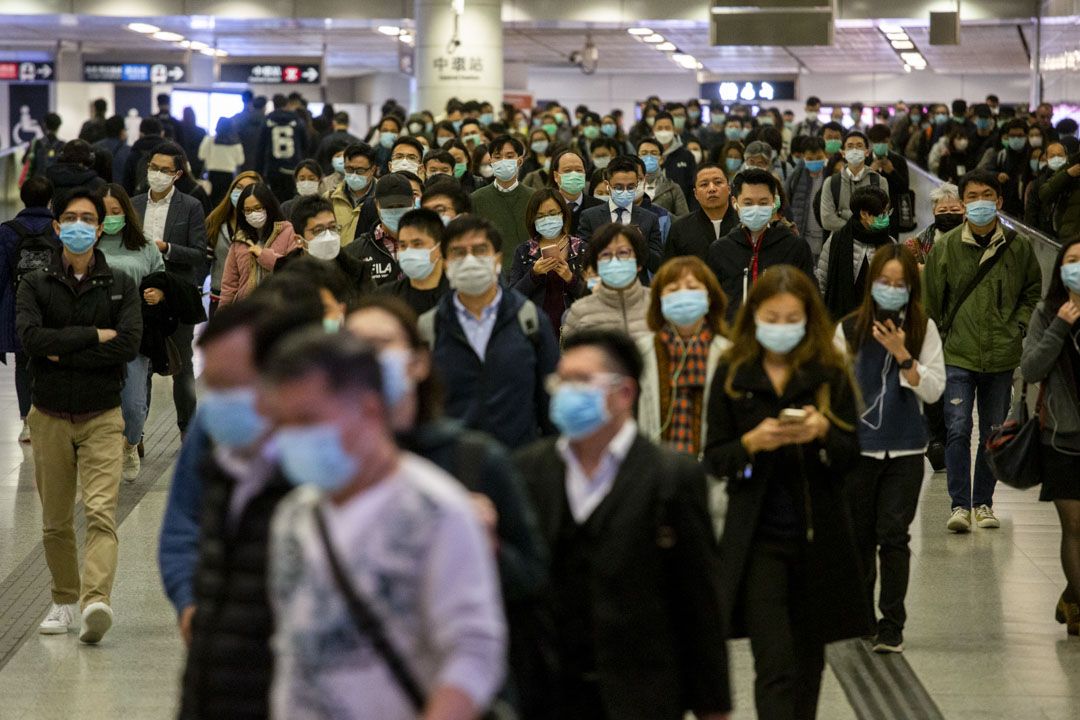
The second half of last year was also the period when the anti-amendment movement in Hong Kong was in full swing. The performance of the "China-Hong Kong conflict" mainly focused on the Hong Kong people's distrust and antipathy towards the CCP regime. However, after the outbreak of the "new crown virus", the Carrie Lam regime, which has lost the public's hearts, refused to "close the customs" and gave up the possibility of blocking the virus from entering Hong Kong from mainland China, which further stimulated the rebound of Hong Kong people against people from mainland China, which eventually caused A debate about "racial" discrimination, but perhaps the focus has been misplaced.
In the contemporary world, the spread of epidemics, "racial" xenophobia and the crisis of regime governance are not unique to China and Hong Kong, but are common problems faced by all parts of the world. The spread of the "2019 coronavirus" has made developed countries such as Japan, South Korea and Italy unable to prevent a full-scale outbreak of pneumonia in the community; the increasing influx of refugees has forced European and American countries, which have long advocated multiculturalism, to adopt more and more closed or xenophobic policies; and some "democratic powers", such as the United States, India, Brazil and France, although the government is elected, it is still unavoidable to fall into various crises of governance legitimacy - Trump has become the first in American history. Three presidents impeached by the House; the Citizenship Amendment and the new Trade Union Law sparked demonstrations and hundreds of millions of workers’ strikes, undermining the Modi regime in India; handling the Amazon forest fires The reputation of the domestic and international community plummeted; retirement reforms promoted by the French government led to mass strikes in major economic sectors. Now the epidemic is breaking out all over the world, further challenging the governance and governance of governments in various countries. In other words, the three social crises of epidemics, xenophobia, and governance legitimacy are universal problems in the contemporary human world.
Viruses, xenophobia and governance crises all have the opportunity to put human society and natural ecology at risk, regardless of race and species. These crises appear to be unrelated, but in fact stem from the same social structures and relationships, or a constant exploitation and domination of others, including other races, animals and plants, as tools for our own use only of modern human survival.
extensive domestication
Anthropologist Ghassan Hage’s 2017 book, Is Racism a Threat to the Natural Environment? (Is Racism an Environmental Threat? Malden, MA: Polity Press), explores the relationship between racism and human domination and discrimination against other species. His main thesis is that the two are very similar (think modern society's attitudes towards plastic waste at sea and refugees at sea), and they both developed from the same source, behind what he calls "generalized domestication". domestication) of the human way of life.
"Domestication" means that human beings regard other races or animals as tools to dominate, exploit, transform or educate them for our own use, that is, to transform others that are considered useful or harmful to those who domesticate them ( domesticator) A valuable or harmless object. Domestication can also be a process in which humans attempt to subdue the instinct of beasts with "civilization"—for example, by accumulating politically correct cultural capital such as "democracy" or "rule of law", "tolerance", "rationality", etc. continuous process. When this logic of trying to transform the other for oneself becomes a general relationship between people and other animals and plants, so that the existence value of the domesticator is entirely based on living for the purpose of instrumentalizing the other, It constitutes "widespread domestication", the way of life that humans inhabit the world.
The Latin etymology of domestication is domus, the practice of making a home, and domus and dominus share the same etymology. Thus, Hage points out, domestication actually means creating a sense of hominess by dominating other races or animals. Just like we train cats and dogs with a little wildness into docile family pets. In this process of domesticating dangerous species or alien social forces, in addition to instrumental considerations and domination based on violence, there is also an emotional longing for a home, or the pursuit of the world we inhabit. Build the feeling of home. In other words, domestication is a way of inhabiting the world by mastering and transforming others to generate useful value and satisfy emotions. It is often expressed as a mutually beneficial or win-win relationship, that is, an ideal harmonious family relationship. . However, Hage emphasizes that this is not an attempt by domesticators to hide the truth of domination and violence behind the "win-win", but rather the characteristic of "widespread domestication", which includes both instrumental considerations and emotional needs.
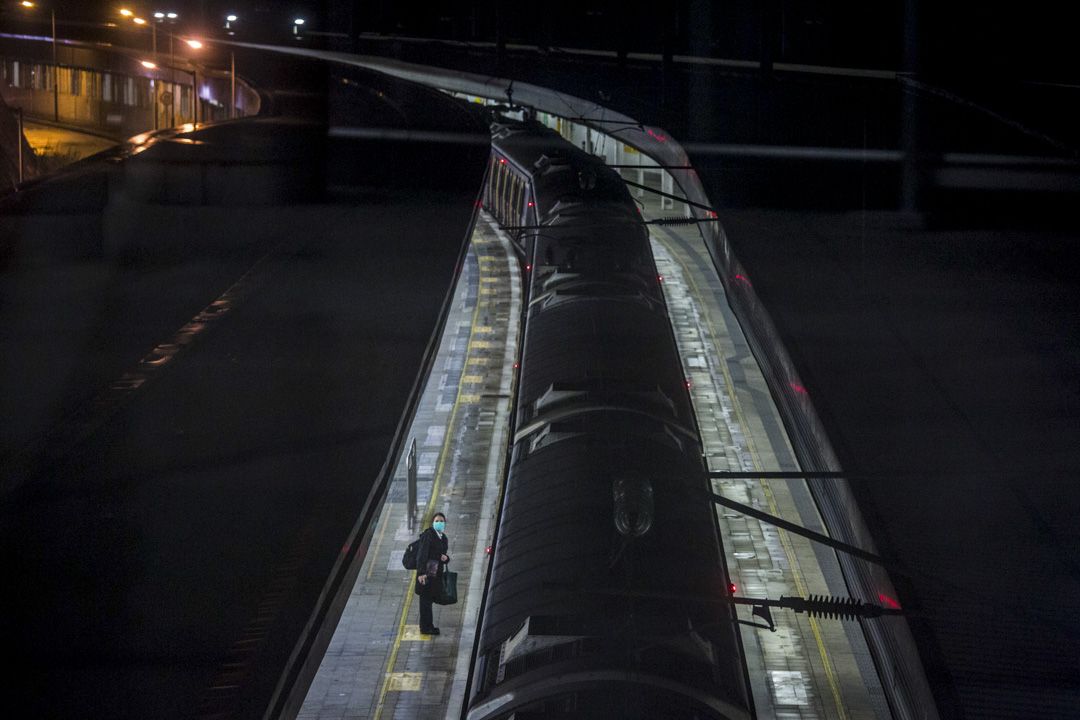
In addition to the pursuit of a sense of home, another emotional underpinning for "racism" or speciesism is fear or panic about "colonial reversal." Hage uses Islamophobia as an example to illustrate that racism is often shaped by colonial history and has continued this domination relationship into the contemporary world. For the colonizer or domesticator, the success of widespread domestication is an existential matter. They worry that those who cannot be contained or integrated, such as "terrorists" who are likened to "lone wolves", lose their sovereignty and ability to dominate them, and the colonized The colonized or domesticated will someday come in an "imperial strike", taking the colonizer or domesticated in their place.
Hage further analyzed that if racism is not described and defined from a purely academic perspective, that is, it does not pursue pure theoretical accuracy, so as to ask whether the contradiction between the people of China and Hong Kong belongs to "racial" discrimination, but to understand the existing racism, understand it. For all operations that problematize, marginalize, criminalize, disturb, or exclude, discriminate, or exploit a particular identity group; Self-contradictory, even far-fetched, logics that discriminate against specific others, including boundaries based on national sovereignty or exclusion based on racial class divisions, or instrumental classification of other races as Discriminatory measures, both useful and harmful, to numerical racism in response to increasing numbers of immigrants, travelers or pets, etc. From this perspective, we can understand that racism and speciesism actually share the same root, that is, they arise from the same social structure and the same way of human existence, and are widespread domestication closely linked to governance and capitalist exploitation. A survival logic that inhabits the world instrumentally.
Reciprocity and Symbiosis
Widespread domestication is not a problem in itself, nor does it necessarily lead to racism or the demeaning, discriminatory, or excessive (or even genocidal) exploitation of other life. Hage cites Nietzsche to point out that exploitation or instrumental use is actually an indispensable relationship in the human world and a manifestation of the will to life (power). The problem is that in modern capitalist society, widespread domestication has become the only approved and advocated way of existence, excluding other human beings, human beings and beasts.
For Hage, in addition to widespread domestication, there are two other ways humans have inhabited the world. The first is reciprocal and the second is mutualist. "Reciprocity" is based on the existence of clearly demarcated boundaries between individuals, and it is a gift exchange relationship between people and other species that transcends instrumental calculation. "Symbiosis" does not assume the existence of a priori clear boundaries between individuals, that is, it opposes the separation of self and other, and other species. "Symbiosis" accepts that there is otherness in oneself, and animality is mixed in human nature. All people are domesticated and domesticated at the same time, but they exist in different mixed forms and different degrees of mixing.
Extensive domestication often satisfies oneself through the tooling of the other; the symbiotic way of living means that the other is actually within "self", you have me, and I have you; the way of living in the world of reciprocity is Refers to my existence as a need to walk with the other—by contributing oneself as a gift to the other, or the other as a gift in return, establishing a reciprocal relationship beyond instrumental calculation, that is, people of different races, different species , can be regarded as a gift to each other, rather than a purely used tool. The relationship between human society and natural ecology usually includes three survival modes: mutual benefit, symbiosis and extensive domestication. For example, hunting society has both the instrumental use of wild animals by hunters (widely domesticated), and the gratitude and respect of hunters for wild animals as gifts of nature (based on a reciprocal relationship based on long-term gift giving); hunters and prey also coexist with each other - No prey, no hunter, and vice versa. The "hunter" may be the "prey" of the beast or the virus, the beast being hunted or the virus contained, or the "hunter" at the same time.
The main problem of modern society is that widespread domestication suppresses other forms of survival and monopolizes all the choices of life inhabiting the world, so that any question outside the framework of widespread domestication cannot be raised, let alone dealt with. Therefore, Hage believes that we cannot only use the perspective of domesticators to propose how to manage resources and transform humans and animals to curb the epidemic or solve the immigration problem; nor can we only try to dismantle racism and speciesism through rational cognition. Binary thinking and action habits, as this is a practical problem involving emotional dynamics. Moreover, dualistic thinking and practice are one of the abilities of human beings to live in the world, which cannot be avoided and should not be lost.
If the problem is not the way of survival of widespread domestication, but rather that modern capitalism transforms widespread domestication into a logic that monopolizes everything and excludes the other two relationships between man and man and man and other species, then the way out of the crisis is obviously not Not to completely reject widespread domestication, and its closely related instrumental use and domination, but to oppose it as the only way to live or inhabit the world, so that reciprocity and symbiosis can also be used in modern man-to-man, man-to-man It stands head-to-head in its relationships with other species, against the tyranny of widespread domestication. Hage concludes hopefully, today more and more people are embracing alternative modes of survival beyond instrumental considerations. How to transform such diverse community ethical considerations into political actions related to the majority of people, and how to promote diverse modes of existence and interpersonal relationships, is an extremely worthy question in the current crisis.
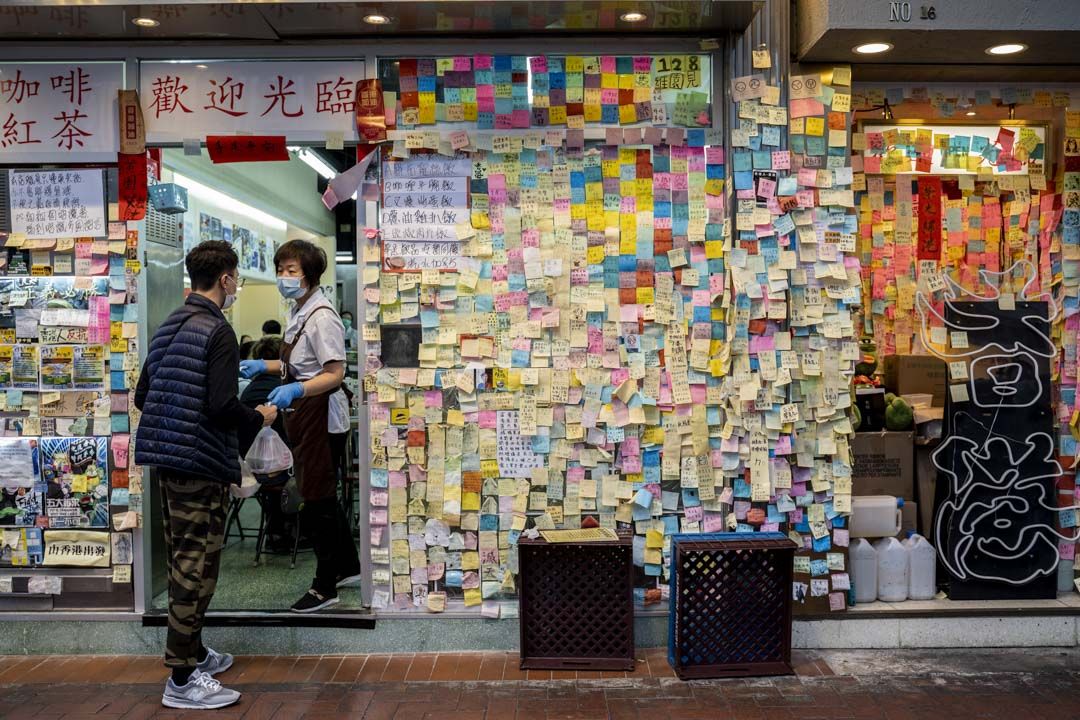
Back to Hong Kong Dancing with Wolves/Mantises
Borrowing from Hage’s analysis, the contemporary crisis of epidemics, xenophobia and governance legitimacy in China, Hong Kong and the world can also be understood as rooted in “widespread domestication” that rejects “reciprocity” and “symbiosis” and becomes the only existence for human beings in the world. Way. The rejection of the virus-suspicious carrier—including humans or other animals—and even the “racism” based on the instrumental thinking of “anti-epidemic” or the emotional concern of defending the homeland may hide a wide range of Domesticated monopoly practices.
The performance of the Chinese and Hong Kong regimes in the face of epidemics and racial/xenophobic crises has thoroughly demonstrated the instrumental logic of its widespread domestication - only considering all human beings and other species as things that can be used or not, based entirely on political and economic interests Calculations, formulate policies and take actions, such as classifying medical staff who participate in strikes as useful or harmful, and adjust the intensity of anti-epidemic isolation according to economic needs. The reason why the Chinese and Hong Kong regimes have fallen into a serious crisis of governance legitimacy also stems from their rejection of "reciprocal" and "symbiotic" social relationships and the way of human existence, and no respect for the life choices of others, especially in the eyes of "domesticians". The useless or harmful others, that is, "thugs" in the eyes of the regime or cockroaches (cockroaches) in the mouth of the police.
Using other animals as a metaphor, it is a common presentation of all racial classifications, "lone wolf" (that is, "thug" or "terrorist" in the eyes of the regime), cockroaches (cockroaches), viruses/bacteria and their vectors, representing It is a useless or even harmful image to the domesticator, and it is a dangerous other that cannot be governed and assimilated. The Chinese and Hong Kong regimes have no respect for the life goals of the people or other species, and have no gratitude to nature and the protesters. They only use "lone wolf"/"thug", cockroaches (cockroaches), viruses/bacteria, etc. as a metaphor for their uselessness or harm. It does not recognize the "wolf nature" or "roach nature" of its own and its criticized opponents, nor does it recognize the "thug nature" in their eyes. ” or “雱蔴” also possesses human nature, pushes binary opposition to the extreme, regards all living beings as tools, and depreciates the life choices of different “races” or “species”. .
If the debate about racial discrimination can go back to its roots, it may be able to grow new horizons. If we only debate whether xenophobic self-preservation is equivalent to "racism" in a strict academic sense, or if we only use broad domestication as a reference and list out the bipolar options of full acceptance or full rejection, that is to support the instrumental logic of the government's broad domestication dominance. Or completely tolerant of any instrumental considerations and domesticated operations, I am afraid it is difficult to provide a possible way out for the existing crisis. When folk resistance also leaves instrumental thinking, or completely rejects the widely domesticated way of life, ignoring that others—different races, identities, species—are also subjects with their own life goals, which is equivalent to rejecting reciprocity , symbiosis and domestication of the possibility of multiple coexistence. This is probably what the people need to avoid when responding to crises such as epidemics, racial xenophobia, and the failure of regime governance.
Bibliography: Hage, Ghassan (2017): Is Racism an Environmental Threat? Maden, MA: Polity Press.
"Rice Studies" and Xenophobia: Why did the language of "Down with the Capitalist Roaders" emerged on the Chinese Internet?
A whole new set of discourse systems criticizing Deng Xiaoping appeared online with the epidemic. What subtle changes in ideology are reflected between dissemination and blocking?
Billy the Kid2020-03-10
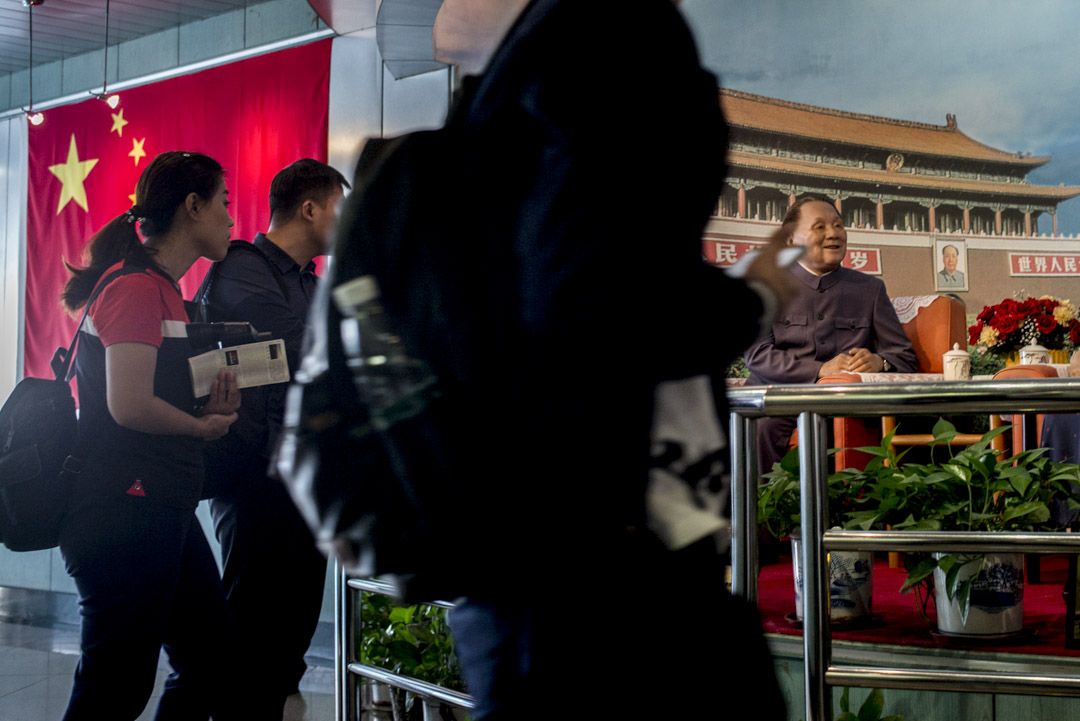
On the Simplified Chinese web, the blocked thesaurus has always been unpredictable.
Since the outbreak of the new crown pneumonia, the new entry into this thesaurus has not only some sensitive words related to the epidemic, but also a puzzling word: rice science.
This new, confusing term is a set of discourse systems for criticizing Deng Xiaoping. The emergence and banning of this discourse system reflects some subtle changes in the ideology of mainland China.
The narrative of "Flying on Rice" is not new
The core point of "rice learning" is very simple - Yang Mao and Deng.
Netizens who are keen on "rice learning" believe that Deng Xiaoping not only destroyed many great ideas of the Mao era, but also buried many hidden dangers in the era of reform and opening up, and these hidden dangers have continued to this day. His "capitalist roaders" mistake.
The "rice" of "Dao Xue" comes from the nickname "Dao Shang Fei" given to Deng Xiaoping by some netizens. The source is a news photo once published in the "People's Daily". The photo was taken on October 9, 1958. At that time, Deng Xiaoping inspected the achievements of the "Great Leap Forward" in Tianjin Shengfang People's Commune, and stood on a pile of "bumper harvest" rice with local cadres and farmers for a photo.
Netizens who use "Dao Shangfei" are trying to express the meaning that Deng Xiaoping is not only fully aware of the exaggeration during the "Three Red Flags" period, but is also an important promoter, so he also needs to take "main responsibility" for the subsequent "three-year difficult period". .
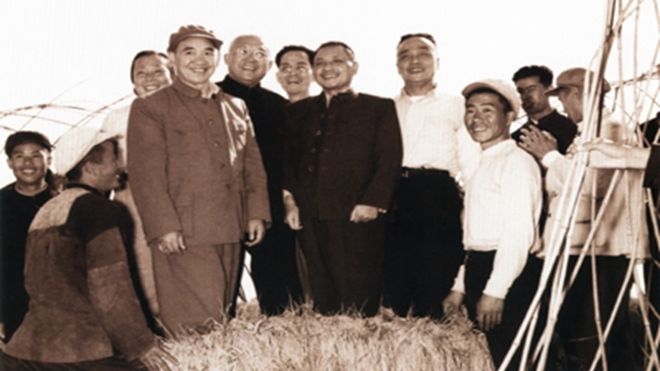
This is not new historical material, nor is it a new argument. In 2011, some netizens posted this photo on some forums and blogs. The point of view derived from this photo does not deny the failure of the Great Leap Forward, and even admits that "difficult times" caused tens of millions of Chinese to starve to death, but it firmly does not admit that Mao Zedong was responsible for the Great Leap Forward, these online posts say, In 1958, Mao Zedong had already "resigned to the second line", and the exaggeration was promoted by the "capitalist roaders" of Liu Shaoqi and Deng Xiaoping, who presided over the work of the Central Committee. These viewpoints further believe that Mao Zedong repeatedly raised his suspicions about exaggeration. Later, Mao Zedong initiated the Cultural Revolution because he wanted to mobilize the people to overthrow these "capitalist roaders" bureaucrats. The death of Liu Shaoqi and the resignation of Deng Xiaoping were all caused by the Cultural Revolution. results. They also believed that after Mao Zedong's death, the regime was usurped by Deng Xiaoping, and there was no "truth" in official history education.
This point of view is more similar to that of the former "Hometown of Nowhere" website, and it is different from the official historical narrative in the era of Jiang Zemin and Hu Jintao that emphasized the negative effects of the "first thirty years". Apart from that, it also differs from the "Industrial Party" view that has become popular among nationalists in recent years. The "Industrial Party" does not admit or limitedly admits that the phenomenon of starvation occurred in China during the Great Leap Forward, but believes that China's industrial and agricultural level has been greatly improved during the Great Leap Forward, which has laid a good foundation for the rapid development of China's industry and agriculture after the reform and opening up. The basics.
The viewpoints of "Rice Studies" and "Industrial Party" are inconsistent with the official mainstream historical narrative since the reform and opening up. But comparing the two, it is clear that the "Industrial Party" argument is more likely to be officially accepted. Because it avoided the existence of the Great Famine, and at the same time better combined the "first three decades" (the Mao era before the reform and opening up) and the "later thirty years" (the reform and opening up to the beginning of the 21st century), alluding to the "new" era” (Xi era) “two cannot be denied” proposition. In recent years, nationalist websites such as Observer.com, which have become increasingly influential in China, also hold this view.
"Maoist" is making a comeback?
"Rice Studies" regained attention in January 2019. Someone re-uploaded the video data of the research trip when Deng Xiaoping took the photo of "Dao Shangfei", which attracted the attention of social networks. The connotation of "rice learning" has also gradually expanded: Deng Xiaoping was not only responsible for the Great Leap Forward, but also his actions in the case of Gao Gang, Jao Shushi (1955), and the anti-rightist movement (1957), and the "Never Never" made to Mao Zedong during the Cultural Revolution. "Reversal of the verdict" promises have all been turned over as critical arguments. All policy mistakes in the first three decades (such as "anti-rightist") have been interpreted as Liu Shaoqi, Deng Xiaoping and others deliberately over-implemented Mao Zedong's policies, thus allowing opponents inside and outside the party to attack Mao Zedong.
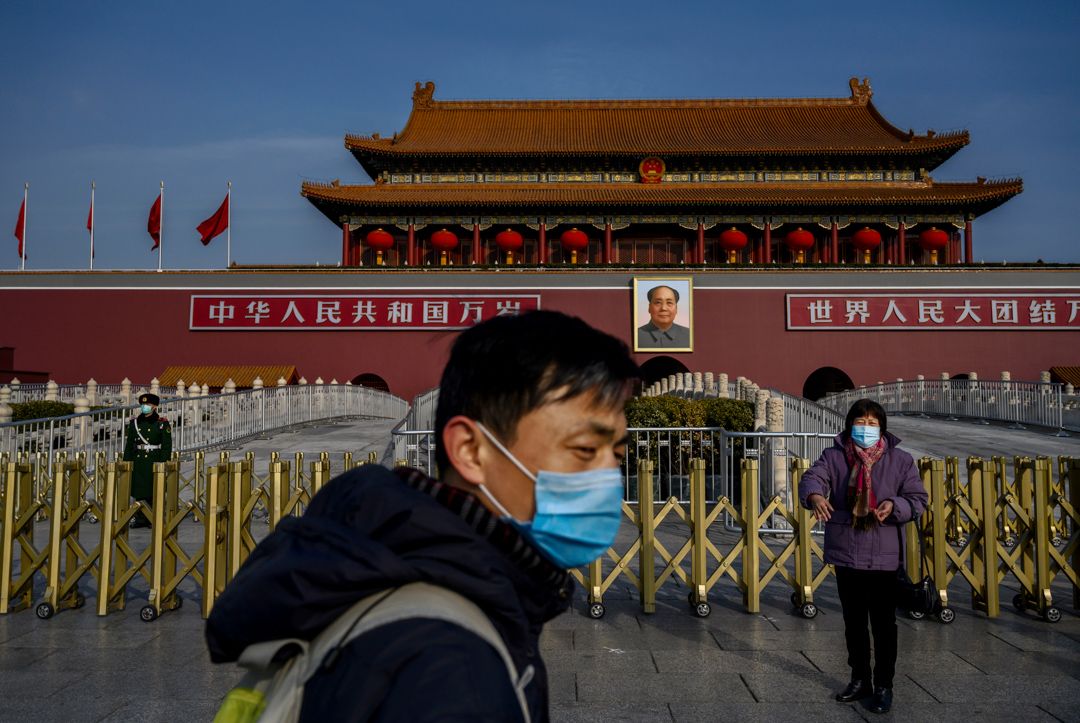
But the criticism of Deng Xiaoping in the first 30 years is too far from real life. If you only focus on these issues, "Rice Studies" is destined to be like the website "Nowhere", which has been declining, and its influence is limited to some old leftists. circle. The appeal of "rice learning" lies mainly in its alternative interpretation of reform and opening up and current China.
"Rice scholars" believe that a series of social problems in China after the reform and opening up, such as the imbalance between urban and rural areas, the widening gap between the rich and the poor, the military's business, environmental pollution, social moral corruption, foreign cultural invasion, etc., are all to blame on Deng Xiaoping Waiting for the "restoration of the capitalist roaders". As for Deng Xiaoping's own family members (son Deng Pufang, who is closely related to the disability welfare system, He Ping, son-in-law in charge of Poly Group, Deng Zhuorui, granddaughter of Anbang Group, etc.), the family of his close comrades-in-arms Ye Jianying, Wang Zhen and others , have been described as the biggest vested interests in the early reform and opening up.
In the "Rice Learning" narrative, after Hu Yaobang and Zhao Ziyang, who were in conflict with Deng Xiaoping, stepped down, Chen Yun, one of the CCP elders, recommended Jiang Zemin to hold the job. Jiang Zemin dared to demand that "the military stop doing business". Hu Jintao was understood by "rice scholars" as "good in nature" but "weak in character" and did not dare to take action against Deng Xiaoping's policies.
In the "rice learning" narrative, Xi Jinping played the role of "setting things right" -- policies in the fields of anti-corruption, the military, state-owned enterprises, social governance, ecological environment, and culture have all returned to Mao Zedong's "correct direction." Thus it appears that he is the real heir to Mao Zedong.
Who is the audience of "Rice Studies"? After a small-scale study, the author of this article believes that the main body of "Rice Studies" is young people born after 1995. In their youth, China was already an economic powerhouse, and the rapid economic growth in the early days of reform and opening up was a distant memory for them, and they were even less impressed by the suffering of the political campaigns before the reform and opening up. On the contrary, after 40 years of reform and opening up, social mobility has slowed down, and social contradictions have accumulated more intuitively. The experience of "everyone is getting rich" is not obvious, but the relative deprivation of "some people get rich first" is very strong. Blaming past leaders for everything will be persuasive and not as dangerous as direct criticism of the current government.
"Rice Studies" provides them with an alternative historical explanation. As in literature, there is an "evil villain" in this narrative, whose name cannot be mentioned, only a nickname as a substitute. The villain has usurped the historical legacy of a former hero (Mao Zedong), and his dark reign can only be ended by a new generation of heroes (Xi Jinping).
The origin of "Rice Studies" is still unclear, but it is certain that it is at least not a purely grassroots movement. Deng Liqun (1915-2015), a member of the party's "Zuo Wang", and even Zhang Chunqiao, a member of the Central Cultural Revolution Group and member of the Politburo Standing Committee in the 1970s, was quoted under the topic of "Rice Studies". These arguments are definitely "extra class" for the post-95s generation. According to what we have seen so far, the Weibo accounts "Thought Torch" (National Cultural Security and Ideological Construction Research Center of the Chinese Academy of Social Sciences), "Below the Horizon" (a military blogger), and the Weibo topic "Historical Truth", All played an important role in "Rice Studies", and some Douban groups and Zhihu issues also participated.
Play with fire and set yourself on fire?
If it weren't for the new crown pneumonia epidemic, "rice learning" might still be just a niche topic for some netizens to entertain themselves, just like the "clam learning" of former president Jiang Zemin. However, what no one expected was that the poor performance of the Hubei Red Cross Society during the epidemic gave the "rice scientists" a chance to get on the big stage.
At the end of January, after Wuhan closed the city, the distribution of donated materials in the city was chaotic, which has been criticized by netizens. It was not until February 4 that the Hubei Provincial Commission for Discipline Inspection punished Zhang Qin, the full-time vice president of the Provincial Red Cross Society, and other officials. ease. But the "rice scientists" told an alternative version of the story. They claimed that Deng Xiaoping's younger brother, Deng Ken, had served in Hubei for a long time, serving as vice-governor, and that the Hubei Red Cross Foundation's name was Deng Kun'e, who may be "Deng Ken's granddaughter."
In this way, the material problem in the "rice study" narrative is not just malfeasance or corruption, but has become a conspiracy of the "rice family" to "sabotage the epidemic prevention work" in an organized and planned way and to "smear" the current leaders.
The "rice scientists" began to revel. The "responsibility" of Hong Kong's anti-revision campaign in 2019 was also thrown on Deng Xiaoping's head in "Rice Learning": they claimed that Hong Kong was a channel for the powerful and powerful in the Deng era to transfer assets, and in order to prevent Hong Kong from being controlled by Beijing, "Rice" home” has fanned the flames and created a social unrest.
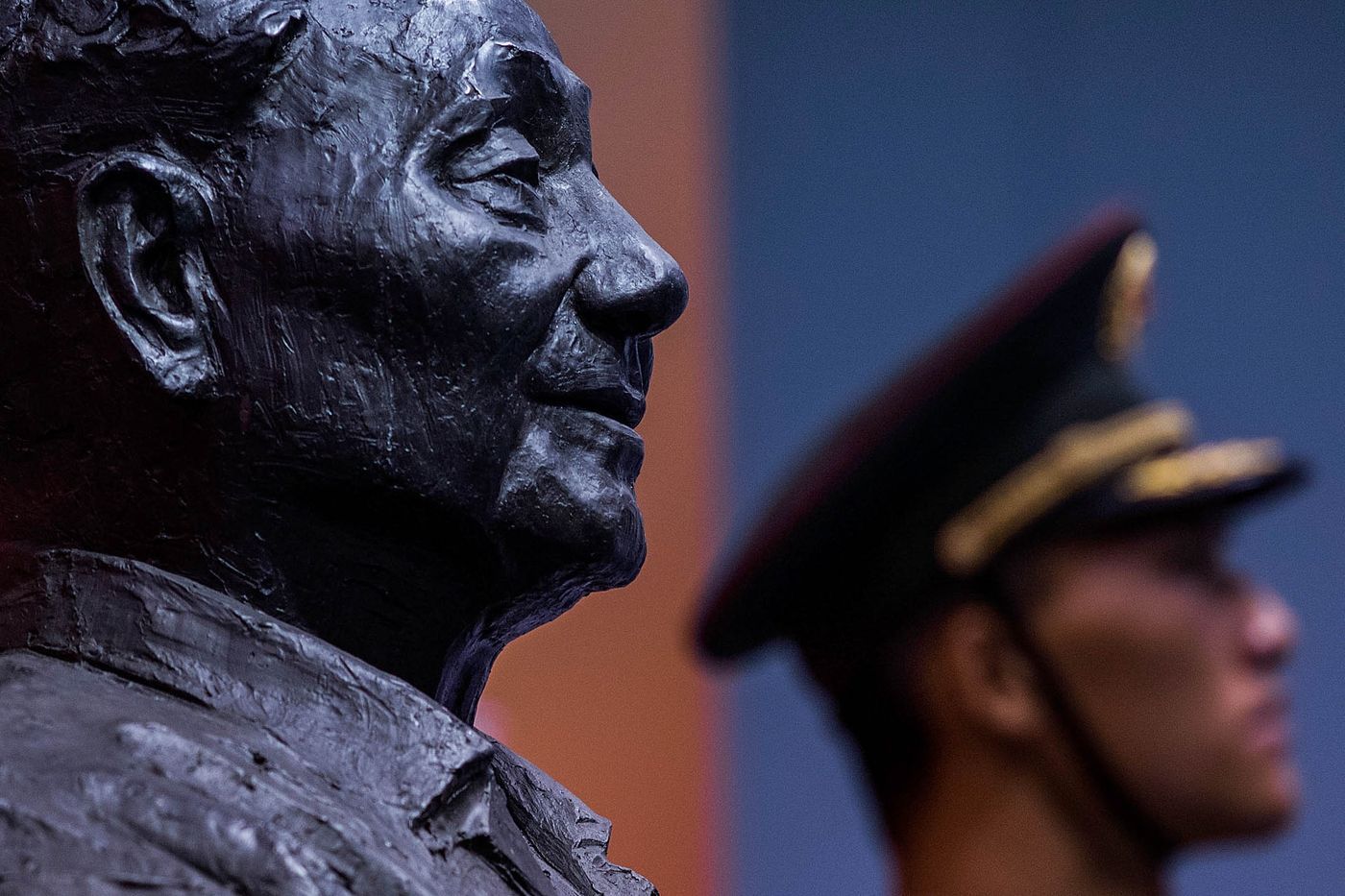
Even, further, the scope of criticism of "Rice Studies" is not limited to Deng Xiaoping. The "rice scientists" have found that as long as "capitalist roaders (zzp)" and "revisionism (xzzy)" are flexibly placed on the heads of any current officials, then any bad policy can be a "rice family trouble" .
For example, on February 27, the Ministry of Justice released a draft of the "Regulations on the Administration of Permanent Residence of Foreigners" on its official website, which sparked huge online controversy. Quite a number of critics stand on a nationalist or even racist standpoint, believing that the regulations will allow many "low-quality foreigners" to settle in China, and even lead to a large number of transnational marriages due to "spouse residency", polluting the blood of "the descendants of Yan and Huang." The "rice scientists" offered a class perspective. They said that some of the second generation of powerful and powerful people were born abroad and possess foreign nationality. Permanent residency can facilitate these second generations to enjoy China's welfare benefits and to take advantage of regulations. Foreigners with permanent residency in China have their income in China not subject to foreign exchange controls to transfer the money away.
The confluence of nationalism (racism) and "rice studies" on the issue of permanent residency has brought substantial pressure to the government. The Justice Department acknowledged on March 7 that the regulations are controversial and will further refine the changes.
Internet regulators have also paid attention to "Rice Learning". After the Hubei Red Cross incident, major Internet platforms have blocked the topic of "Rice Learning". Some fans of "Rice Learning" said that "Thought Torch" Weibo has been restricted. Many "rice studies" related content can only be circulated in the form of screenshots or mirror images of overseas websites.
The logic is not difficult to understand. It’s okay to share the worries of the current leaders, but after all, Deng Xiaoping is the founder of the second of the three eras of “standing up, getting rich, and getting strong”, and completely denying him will bring about a crisis of legitimacy —this is why” “Two cannot be denied” emphasizes that the latter 30 years (the era of getting rich) cannot be used to negate the first 30 years (the era of standing up), nor can the first 30 years be used to negate the latter 30 years. And as a netizen commented in a deleted Zhihu answer : Criticizing Deng Xiaoping for going too far, if someone finds out about sensitive incidents such as the student movement, and cites Mao Zedong's sayings that the student march is innocent, and calls on netizens to rehabilitate the student movement, then It really may not end. After all, during the June 4th Incident in 1989, one of the major themes of the pro-democracy movement was "anti-corruption, anti-official downfall", pointing to Deng Xiaoping and the families of other veterans and high-level party members.
The bigger problem is that "rice science" itself is very confusing. It has the color of traditional "Mao Left", so it has drawn the opposite of Mao of socialism and Deng of capitalism. However, in the current environment, whether it is the popular phenomenon of "996" overtime work or the brutal suppression of the Jasic labor movement, it obviously means the continuation of the "low human rights advantage" of the Deng era; "Although it has the meaning of anti-private enterprises, it does not mean that after the private enterprises are suppressed, state-owned enterprises will undertake some businesses with the nature of public services.
These loopholes are not difficult to see, but why is "rice learning" still attractive? The main reason is that the problems it pointed out in the Deng era did exist and were serious. Blaming one person for all the historical problems and the line disputes between leaders for all the existing problems is a very easy-to-spread argument. Coupled with the common political slang routines in mainland China (the name of "Dao Xue" obviously has the influence of "clam learning", and the words zzp and xzzy are also in line with the popular routine of using pinyin abbreviations on social media such as Weibo), the small circle has increased. The sense of mystery will make "rice scientists" immerse themselves in the joy of "having mastered secrets that others don't know".
From this point of view, the Cyberspace Administration of China can block "rice learning", but it cannot eliminate the soil on which it depends. In the future, similar theories will continue to grow.
(Billy the Kid, Internet Practitioner)
Like my work? Don't forget to support and clap, let me know that you are with me on the road of creation. Keep this enthusiasm together!
